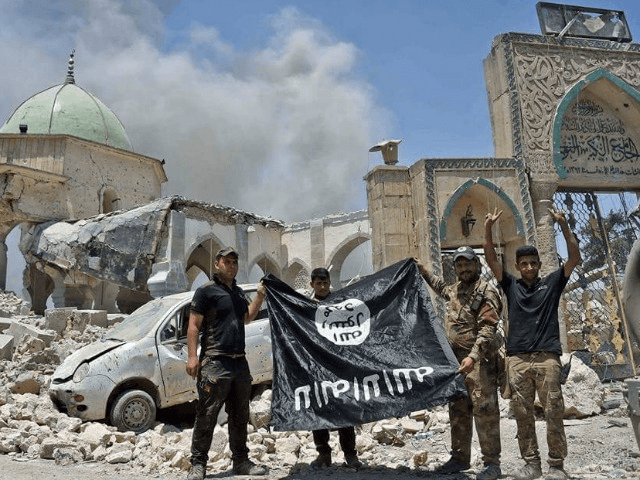Significant losses suffered by the Islamic State (ISIS/ISIL) in its dwindling Middle East-based caliphate have not translated into victories for authorities in the United States and Europe struggling to defang the jihadist organization’s successful online propaganda efforts, warns a new report by the U.K.-based Policy Exchange think-tank.
As it continues to lose fighters and territory in its so-called caliphate in Iraq and Syria, primarily to the U.S.-led coalition, ISIS has also managed to expand its campaign in Europe, an analysis conducted by the United States-based Institute for the Study of War (ISW) has also found.
Citing an internal French police report, the Daily Mail cautions that new ISIS propaganda is urging terrorists to attack tourist attractions, churches, and other “symbols of western life.”
“Extremists have also called on ‘lone-wolf’ assailants to carry out train derailments, poison food and start forest fires across Europe,” the Daily Mail learned from the document.
Described as a component “of the militant group’s efforts to regroup on Europe’s doorstep,” the Wall Street Journal (WSJ) reported that Libya is experiencing an ISIS resurgence fueled by an estimated 500 terrorists.
According to Europol, the E.U.’s law enforcement agency, there was a total of 142 terrorist attacks and attempts in eight countries in the region last year alone, with the majority of them concentrated in Britain, reports the Independent.
The Journal noted that the regenerating ISIS branch in Libya is seeking to exploit the ongoing migrant flow into Europe to carry out attacks in the region.
However, the ISW study determined that there is no evidence that the jihadist organization is systematically using the refugee crisis to smuggle terrorists into Europe or directly infiltrate asylum seekers for radicalization.
Europol pointed out that some refugees could be vulnerable to ISIS propaganda but also maintained that no direct link has been found, notes the Independent.
Various analysts have determined that the ISIS ideology will outlive the organization’s caliphate and remain a threat long after the group’s imminent defeat in Iraq and Syria.
“ISIS is waging a social and informational campaign to gain support among Western populations—Western states will not be able to kill and arrest their way out of this problem,” reported ISW.
“That struggle [against global jihad] has increasingly been contested not just on the ground, but in a new domain of warfare, cyberspace,” explained American Gen. David Petraeus in a foreword to the Policy Exchange report.
Petraeus, the former director of the CIA who also served as the top commander of American and NATO forces in Afghanistan, cautioned that ISIS would continue to inspire atrocities around the world by targeting the most vulnerable sections of society with its “poisonous ideology” after the U.S.-led coalition defeats it on the ground.
The U.S.-led alliance and local forces, including Iranian and Russian-backed forces loyal to Syrian dictator Bashar al-Assad, have nearly pushed ISIS out of Iraq and Syria.
Meanwhile, the Policy Exchange report revealed that “ISIS and other terrorist groups are winning an ongoing ‘netwar’ against authorities trying to stop the spread of extremist material online,” reports the Independent.
According to the analysis, content affiliated with ISIS and other jihadists group is accessed more frequently in Turkey, the U.S., Saudi Arabia, Iraq, and the U.K., respectively.
The U.S. government has acknowledged that it is losing the online propaganda war against ISIS.
While ISIS has claimed responsibility for terrorist attacks carried out by refugees, including the recent bombing against the London subway system, ISW concluded that there was no evidence of “coordinated ISIS involvement”.
Instead, authorities should be more concerned about the threat stemming from the estimated 2,500 foreign fighters within ISIS’s ranks in Iraq and Syria “who are able to form links with jihadi and criminal networks in their home countries even if they do not return,” notes the Independent.

COMMENTS
Please let us know if you're having issues with commenting.